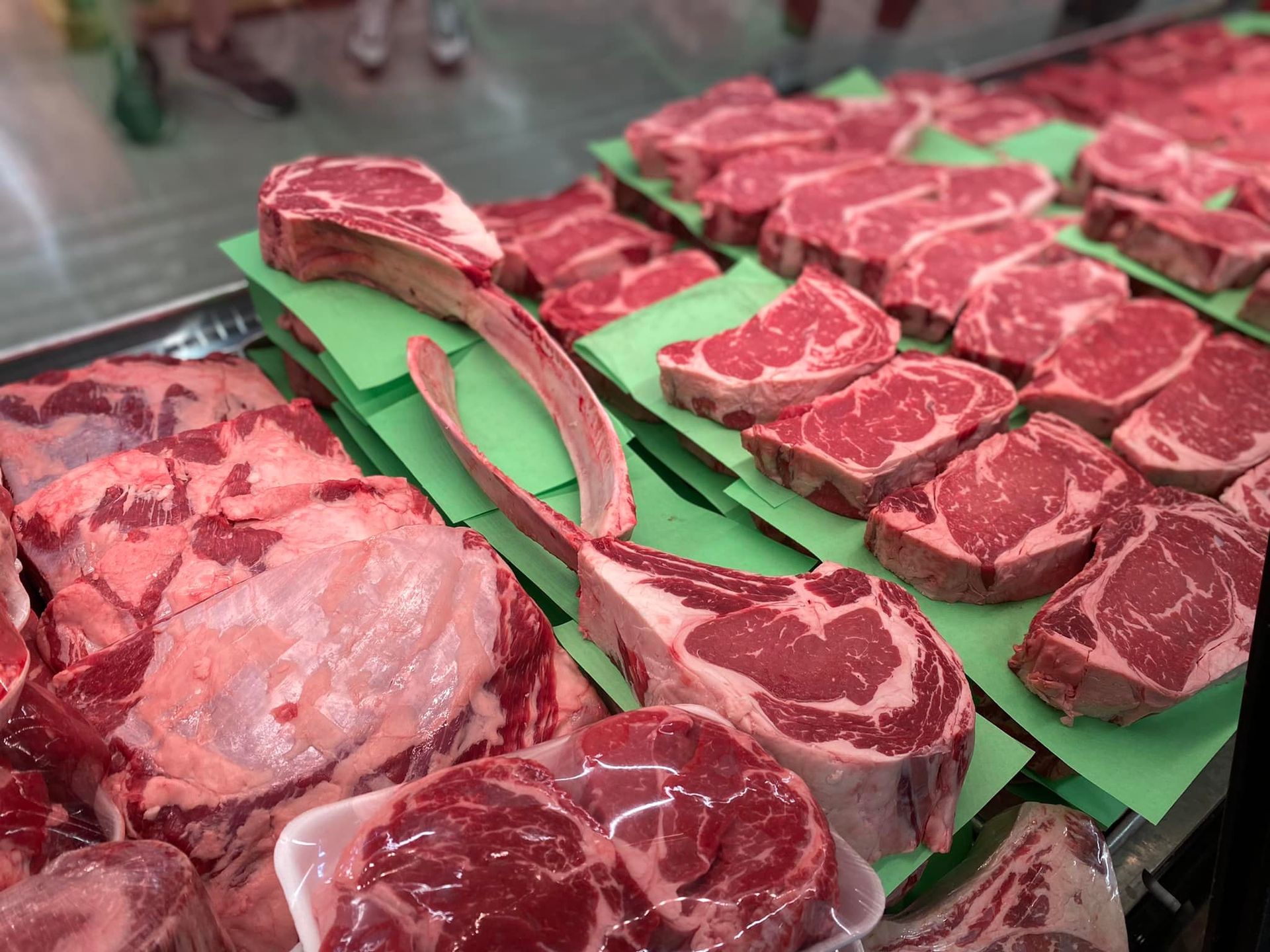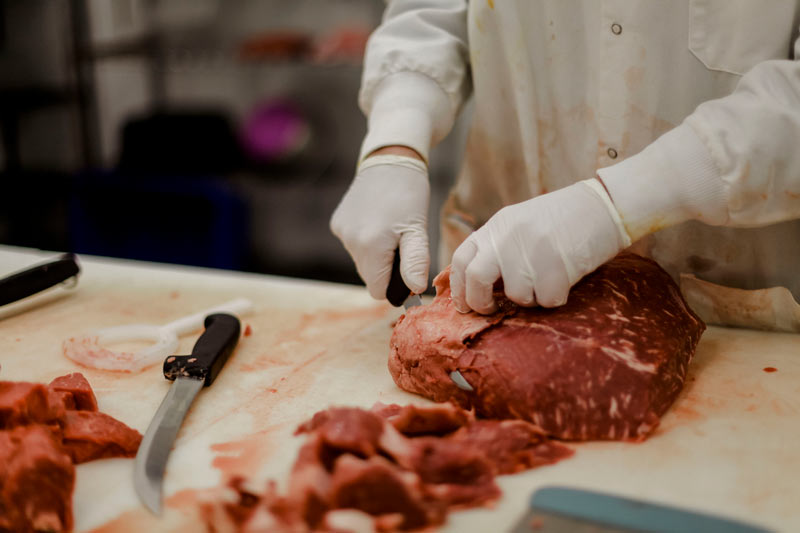Bagley Meat Market Edwardsville IL: Your Trusted Local Butcher for Quality Meats
Bagley Meat Market Edwardsville IL: Your Trusted Local Butcher for Quality Meats
Blog Article
Why Purchasing at a Regional Meat Market Guarantees Fresh, High-Quality Cuts
Shopping at a regional meat market uses distinct benefits that frequently go unnoticed by consumers accustomed to larger retail chains. These markets give straight accessibility to fresh, high-grade cuts, an outcome of reduced transportation time from ranch to counter. This not only enhances taste yet likewise supports neighborhood farmers, promoting community partnerships and lasting practices. Extensive quality control measures make sure that each acquisition fulfills high standards of safety and security and quality. Yet, the ramifications of choosing regional extend beyond prompt advantages, triggering a closer evaluation of what this selection genuinely indicates for both consumers and the neighborhood economic situation.
Advantages of Local Sourcing
In the world of food purchase, the advantages of regional sourcing stand out prominently. By acquiring meat from neighborhood markets, customers acquire straight accessibility to products that are typically fresher and much more tasty than those discovered in bigger, business grocery stores. Neighborhood sourcing decreases the time and range food travels from farm to table, which not just improves preference yet likewise protects nutritional worth.

Furthermore, neighborhood sourcing often gives transparency regarding the origins of the meat. Consumers can ask about the farming techniques utilized, pet well-being criteria, and whether the meat is grass-fed or organic. This information encourages consumers to make informed choices lined up with their worths.
Quality Assurance Standards
Regional meat markets usually stick to extensive high quality control standards that guarantee the items supplied meet high security and freshness standards. These requirements normally incorporate different stages of the meat production procedure, from sourcing to taking care of and storage space.
First, local markets commonly develop strict supplier criteria, ensuring that just trusted ranches and manufacturers are utilized - bagley meat market edwardsville il. This lowers the probability of contamination and advertises greater animal well-being requirements. Additionally, several regional meat markets carry out normal assessments to validate that the meat is processed under sanitary conditions, better lessening wellness dangers
Temperature level control is another critical aspect of quality control. Neighborhood meat markets often check refrigeration systems to preserve optimal storage temperature levels, making certain that meat continues to be fresh and safe for usage. The application of traceability systems permits markets to track the origin of their products, supplying openness and responsibility.
Last but not least, team at neighborhood meat markets are typically trained to identify signs of putridity and comprehend appropriate handling methods. This commitment to quality control not just elevates the general requirement of the meat but additionally promotes consumer trust, making neighborhood meat markets a reputable resource for premium cuts.
Sustaining Regional Farmers
Sustaining regional farmers is vital for fostering a sustainable food system and enhancing area durability. When consumers select to go shopping at local meat markets, they straight contribute to the resources of farmers in their region. This not just sustains the local wikipedia reference economy but also enhances the farming field, guaranteeing that it continues to be viable and vivid.


Furthermore, sustaining neighborhood farmers fosters a sense of community and link in between consumers and manufacturers. It motivates transparency in food sourcing and instills count on, as clients can develop partnerships with the individuals who raise their food. This direct connection ultimately results in a much more involved and notified public, which is vital for advocating for sustainable farming methods in the future.
Lasting Practices
Sustainable practices in meat markets play an essential function in promoting environmental stewardship and making certain animal well-being. Neighborhood meat markets commonly prioritize sourcing their products from ranches that execute honest and lasting farming approaches. These methods include rotational grazing, which helps keep dirt health and decreases carbon emissions, alongside reducing using antibiotics and hormones in animals.
In addition, regional meat markets normally emphasize openness in their supply chains. Consumers are provided with info pertaining to the origin of their meat, permitting them to make informed selections that align with their values. By supporting neighborhood farmers that practice sustainable approaches, customers add to the preservation of biodiversity and the reduction of transport discharges connected with long-distance meat distribution.
Additionally, many local meat markets take part in waste decrease approaches, such as utilizing every component of the animal and advertising off-cuts that might otherwise go unsold. By cultivating a much more sustainable strategy to meat consumption, these markets not only offer high-quality items yet additionally contribute favorably to the atmosphere and pet well-being. Essentially, shopping at a regional meat market lines up customers with a broader activity towards honest and responsible food sourcing.
Individualized Client Service
Buying at a meat market often incorporates even more than just the items used; it is also concerning the experience and the partnerships developed between consumers and personnel. Personalized customer care is a hallmark of neighborhood meat markets, her comment is here establishing them in addition to larger grocery chains. Educated personnel make the effort to recognize individual consumer preferences, guaranteeing that each see is tailored to certain needs.
Clients benefit from skilled recommendations on cuts, food preparation techniques, and preparation pointers, promoting a feeling of depend on and commitment. This tailored interaction permits consumers to ask questions and seek suggestions, resulting in educated acquiring choices. Personnel usually keep in mind routine clients and their preferences, creating a welcoming ambience that cultivates neighborhood connections.
Furthermore, individualized solution includes unique demands, such as customized cuts or particular prep work methods, which bigger retailers might not suit. This level of click for info interest enhances the dedication of neighborhood meat markets to high quality and customer contentment.
Essentially, personalized customer care not only enhances the purchasing experience yet likewise makes sure that clients entrust the very best items fit to their culinary requirements, making every see a satisfying one.
Verdict
Supporting local farmers fosters neighborhood connections and enhances the neighborhood economy, while sustainable techniques contribute to environmental stewardship. Furthermore, tailored consumer solution enhances the shopping experience, making local meat markets a favored choice for consumers looking for both top quality and honest considerations in their food sourcing.
The ramifications of selecting regional extend past instant advantages, prompting a better exam of what this choice genuinely implies for both customers and the regional economy.
Supporting regional meat markets also adds to the neighborhood economy. Neighborhood meat markets often monitor refrigeration systems to keep optimum storage temperature levels, making sure that meat remains fresh and safe for usage.Neighborhood farmers are typically a lot more attuned to the details demands of their neighborhoods, elevating and expanding crops animals that align with local preferences and preferences. Sustaining neighborhood farmers fosters community connections and strengthens the local economic climate, while sustainable practices add to ecological stewardship.
Report this page